Oh, I Remember How That Phrase Made Me Stop And Do A Double Take. What?! Aziraphale Never Calls Crowley
Oh, I remember how that phrase made me stop and do a double take. What?! Aziraphale never calls Crowley just to… talk? We thought they'd moved on in the time since S1, but instead they're stuck in some sort of suspended limbo. It was jarring, but I let it pass (although I shouldn't have, because it turned out to be so revealing).
I was discussing this with some friends and thought I would share with you guys.
Sure, that final episode was probably the saddest thing since the creation of the all-denim look back in the late 90's ( and I don't mean sad as it being bad but as it being sad sad). But I think it really paints a great journey for the next season for a lot of reasons but the one I'm gonna be talking is:
Aziraphale takes Crowley for granted.
Now, I don't mean this in a bad way. I think most of us have also taken the people we love the most for granted. I see that happen mostly with families: we argue a lot, we can be so cruel to them sometimes, but we feel more comfortable doing that to them than with other people because we believe they'll love us and be there no matter what.
Now, throughout both seasons we've seen innumerous moments from Aziraphale that show us precisely that.
Crowley has rescued Aziraphale too many times to count. Aziraphale himself has revealed that, in a way, he lets him rescue him because "it makes him so happy." This season Crowley has also said to Aziraphale during the whole demon attack, before he came out of the bookshop, something along the lines of "I'll come back, I'm not leaving you on your own." and when he takes Maggie and Nina out of the bookshop later he asks "Can you handle this?".
Then there's also their disagreements. I get the feeling that, because they've had so many throughout the ages and everything ends up alright in the end, Aziraphale knows Crowley will come back to him eventually after they argue.
At the scene in the coffee shop, Crowley tells Aziraphale that he calls either because he's bored, he did something clever he wants to share before he pops, or something's wrong (which in a way also shows that Crowley can't believe that Aziraphale does that simply because he matters so much to him, but I digress). Aziraphale knows that no matter the reason, Crowley is always gonna answer his calls, he's always gonna be there to listen to him.
On the other hand, Crowley has become increasingly dependent on Aziraphale. He is miserable when they are angry at each other, he's happier when he's with Aziraphale and he has come to a point where he can't say no to the angel. And this only fuels Aziraphale's behaviour and vice versa.
In the last episode we see Crowley saying no. Aziraphale seems to not really take it that seriously and keeps on talking about it and trying to convince him of coming with him. Crowley keeps saying no. Aziraphale sort of behaves like he knows that eventually Crowley will say yes. Crowley keeps saying no. Now Aziraphale is getting frustrated because this isn't how things usually go. And then Crowley says his final no and goes away.
This isn't how it usually goes. I mean, yes, they have gone their own separate ways before and Crowley always comes back but Aziraphale knows this time is final. It feels final.
That being said, they need to grow. They need to grow on their own so they can then grow together.
Both of these lovely idiots who I hold very dearly to my heart need to learn about all this on their own so then, when they get back together, and yes they will, but I'm sure it will be way more meaningful this time, they can love each other better.
More Posts from Gentildonna and Others
Tell me you said no.
Tell me we were on the same page, that you know Heaven is just as terrible as Hell, that there is no good side, no right people, that both sides are happy to destroy all life on Earth if they come out on top.
Tell me you said no.
Tell me you remember how terrified they made you every time you did something good that wasn’t Good by the laws of Heaven. Tell me you value yourself more than that.
Tell me you said no.
Tell me I wasn’t alone in seeing all that cruelty done to humans and wanting no part in it. Tell me you’re not going back to help those people.
Tell me you said no.
Tell me you’re not going back to the people who hurt me first, the oldest, deepest wound. Tell me you understand why I can never go back there. Tell me you know I didn’t deserve it.
Tell me you said no.
Peacemaker is, in my not so humble opinion, one of the best New Series Adventures novels of the RTD1 era. I loved it immensely - and read it aloud (sitting in the kitchen at night, behind a tightly locked door, so as not to disturb anyone at home, and no one would disturb me!) The scene in the cave - if I remember the circumstances correctly - was quite powerful, to say the least.
The interesting thing is that the (for want of a better term) Martha run is pretty solid in quality of novels, compared to Rose’s and Donna’s. I can name three books off the top of my head that I consider to be top notch, at least in terms of characterisation - Peacemaker, Forever Autumn and Wishing Well (and The Frozen Wastes from the Doctor-lite The Story Of Martha is exquisite!).
I remember that from all the books with Rose as companion I found the sole Only Human (erm, it doesn’t sound as clever as I thought it would be) to be really great, and as for Donna… well, to be fair, there are only four novels with her. The Doctor Trap is fun (and a bit whumpy which is great, if you ask me), Ghosts Of India gets Donna’s character exactly right, which is no a mean feat, and In The Blood is rather patchy, but has some great moments (and whump too!).
Anyway, I think I'll give the role reading another try tonight, thanks, OP!
It's been months and I'm still recovering from this novel. It's what shifted me [quite violently] from "I enjoy TenMartha" to "Oh... I think I'm consumed with them now"
![It's Been Months And I'm Still Recovering From This Novel. It's What Shifted Me [quite Violently] From](https://64.media.tumblr.com/d00d9f62401a95a411535e34690ab9a3/ce88792ea5b35c55-18/s500x750/3c50c9df3e9489b49dfec0dbb10b2b92d5bf14e5.png)
You can read it here for free if you like!
I've said this before, but being so late in the game, it feels like everyone has probably already experienced all of these things that are either new or semi-new to me... But perhaps you haven't; perhaps you're tragically unaware that such works exist, just as I was in the spring!
Warning: The story is graphically violent in ways I've never encountered in a DW novel. It's gorgeous for it, but I felt like I should say.
A Nightingale Sang in 1941
This is my inaugural meta (yay!) Eventually I will learn how to add gifs and whatnot to make this more interesting but today, I give you a wall of text.
I need to give credit where credit is due to three existing metas that I’m drawing upon heavily here:
A speculative continuation of the 1941 story, which includes an almost-kiss while “A Nightingale Sang in Berkeley Square” plays on the gramophone,
A behavioral analysis of Aziraphale during the S2E6 finale (will find ref later if possible)
A meta-analysis of the way in which “coffee” is used as a symbolic equivalent for liberty and freedom of choice, a running theme of this show (will find ref later if possible)
I’m going to expand upon meta #2 and #3 and explain why I think there is are very compelling reasons to believe that #1 will be canonized.
At the end of S1E6, an instrumental version of “A Nightingale Sang in Berkeley Square” plays diegetically, but the lyrical version plays non-diegetically over the credits (we hear it but the protagonists don’t). So we the audience could plausibly say “that’s their song,” but as of the close of S1, we have no reason to believe that they know that it’s their song. Even Aziraphale’s S1E3 (1967) suggestion that they dine at the Ritz could be a reference that only he gets, or just a fancy restaurant suggestion.
So when I was watching S2E6 and Crowley said “no nightingales,” I was jarred. What does that even mean? We know it has something to do with dining at the Ritz, but what does it mean to them? The reference only works if they know it’s their song. But we’ve only ever seen them hear it together after the averted apocalypse; if this is the direct reference that Crowley is making, it leaves our 1967 reference contextless and twisting in the wind.
If we assume that there was a romantic story beat in 1941, wherein “A Nightingale Sang in Berkeley Square” (which, incidentally, was written in 1939 and saw the height of its popularity at the end of 1940, so timeline-wise it’s spot-on) became their song, then a lot of events get renewed interpretations through this lens, in a way that makes this story much more cohesive and the “no nightingales” comment even more soul-shattering than it already was.
Let’s presume that immediately after this became their song and just as they were discovering their romantic potential, they were forced back into hiding. Forever after, references to the song serve as a macro for “I’d like to pick up where we left off that night.”
The 1967 suggestion of “dining at the Ritz” now becomes a directly romantic suggestion. It also gives better context for “you go too fast for me.”
Actually going to the Ritz in 2019 is not simply a celebration or even a callback to 1967, it’s a callback to their almost-romance of 1941.
When Crowley says “no nightingales” in 2023, this isn’t to say “we’re not going to eat together at the Ritz anymore.” It’s saying that the romance that began that night, the precious, fragile romance, is over.
I’ll give you a moment to dry your eyes before we move on to metas #2 and #3.
In light that this is what has been going on - they know they want a romantic relationship but have gotten so used to hiding and denying it that they are more comfortable keeping the status quo static and quo-y then trying to achieve their ideal - a lot of S2 behavior can get a fresh view.
Crowley’s reaction to Nina isn’t a realization that he’s in love - he knew that already. You can only ask someone to run away with you so many times before you are forced to admit some things to yourself. No, he’s realizing that trying to hide it (which was justified by survival), hasn’t been working, but despite failing at being stealth nothing bad has happened. He’s realizing that it may finally be safe to show it.
Crowley’s confession, then, is not a revelation. It’s making the subtext text. He’s not telling Aziraphale anything he didn’t already know. He’s saying it now because he thinks he’s safe to do so. Pin in that.
Lots of people have lots of theories about Aziraphale’s motivations in the S2 finale, which can more or less be divided into 4 camps: the genuinely held belief, the coffee theory, the lie theory, and the mutual trick theory (some version of the body-switching at the end of S1). Let me start by saying that I love all the fans and all their theories and I find their analyses to be insightful. The genuinely held belief theory, while I believe it to be erroneous, has been incredibly conducive to so many wonderful conversations and I love being in a community that has those conversations. But I’m going to explain why I think the lie theory finds the most support in canon.
Re-watch the finale (when you feel like you can) from 35:18 to 36:19 and then from 40:45 to the end, paying very close attention to Aziraphale’s words and his eyes. Michael Sheen is telling us a LOT with his eyes, and in the back half of the finale scene, with pacing.
For 60 seconds of footage, this setup is doing a lot of work. If Neil Gaiman wasn’t doing enough to beat us over the head with how evil the Metatron is, that glare at Crowley at the end with the non-diegetic ominous horns should convey the message. But again, focusing on Aziraphale. He initially refuses to talk to the Metatron; he’s made his position quite clear. There is no hint of regret or wavering; this is not someone who’s aching to return to the fold. The Metatron ignores his refusal and functionally forces him to accept a “cup of coffee.” The coffee isn’t spiked, but it is a metaphor. It is symbolic of choice. The Metatron is going to force Aziraphale to make a choice. Meta #3 does a great job of exploring the idea that a choice between anything and death is never really a choice. Hang onto that thought.
Notice I had you start up again 3 seconds before “The Conversation.” That’s because it’s important to note where the Metatron is right now. He is across the street, staring straight in through those giant windows to where our protagonists are about to have The Conversation. He is watching.
When Aziraphale returns, Crowley begins his “let me talk” riff. Aziraphale ought to be interested in what Crowley has to say, since the preamble is pretty compelling. You’ll notice that Aziraphale quickly turns to the window and back, through which he (but not we) can see the Metatron standing there, watching them. Aziraphale is then doing his best to get Crowley to STFU without raising the suspicion of the Metatron, eventually having to cut him off.
Because unfortunately, Crowley’s entire impetus for speaking up now is that it’s safe to do so. Only Aziraphale knows that they are in very real danger (or at least, Crowley is, but I’ll come back to that).
You might take something from the fact that he’s shaking his head while talking about “incredibly good news,” and seems to self-censor his criticism of Metatron (or more specifically, he takes ownership of any criticism of the Metatron, censoring out Crowley’s role in that, with the emphasis on I in “I might have misjudged him”).
Notice in the flashback that he begins the conversation reasonably relaxed. The Metatron also says a series of things about him that not only are false, but everyone, including the Metatron and Crowley, know are false: Aziraphale is not a leader, he’s a defector; he’s not honest, he lies all the time, in fact this entire season revolved around his one huge lie of hiding Gabriel. Not only does the justification not make sense coming from Metatron, but it shouldn’t make sense that Aziraphale would accept these reasons and it shouldn’t make sense to Crowley either. So is Aziraphale including these details in his recounting to Crowley so that he will get suspicious and figure out the jig? Maybe. Let’s continue.
Immediately upon being offered the job of Supreme Archangel, Aziraphale says “but I don’t want to go back to Heaven.” This is direct evidence against the genuinely held belief theory. If returning to Heaven and making a difference was a genuine motivation, we would have gotten a different response at this moment. But then we get something more.
“Where would I get my coffee?”
This is a beautiful response for a number of reasons; coffee should be trivial compared to the opportunity to be a Supreme Archangel, so it serves to highlight just how little interest Aziraphale has in returning. Taken at face value, it’s the Aziraphale equivalent of “not even at gunpoint.” But remember that coffee is a metaphor for liberty in this universe and this season. So what Aziraphale just said, in the language of Neil Gaiman metaphors, is:
I don’t want to go back to Heaven, I would rather have free will.
What does the Metatron do next?
He brings up Crowley.
Watch Aziraphale’s eyes before and after the mention of Crowley. He goes from confused to eye-flicking panic in the space of two syllables. Aziraphale already understands that his “no” is not being accepted, and that bringing Crowley into it can only possibly serve as a threat.
So the coffee, the choice, is a false choice. No one ever orders death. The Metatron has forced Aziraphale into a situation that looks an awful lot like a choice (it comes in a blue cup, after all) but it isn’t.
We definitely have some reliable narrator problems here. I’m going to presume for purposes of analysis that these cut-outs are accurate but incomplete, and that a more explicit threat about what would happen to Crowley if Aziraphale did not return to Heaven was made.
If we assume that Aziraphale has been made aware of a threat and is trying to hide that from Crowley, the rest of this scene reads very differently. Aziraphale cannot say, “you are in danger but you will be safe if you swear your allegiance to Heaven” or “I have to go, no matter what, and the only way we can be together is if you come with me,” but nonetheless he now has to convince Crowley to do the one thing he ought to know Crowley definitely doesn’t want to do all through subtext. Which we’ve spent an entire season establishing that they can’t communicate well when they are allowed to use their words. Disastrously, this is not a magic trick that Aziraphale can make work when it counts. Their failure to practice good communication means that, right now, when it counts most, they are not going to pull it off.
We see that Aziraphale is very hopeful that Crowley will pick up on his cues and play along. Obviously, he doesn’t.
If the whole riff about Hell being bad guys and Heaven being the side of truth and light is taken as genuine, it discards a massive amount of character development that we’ve witnessed in Job, Edinburgh, etc. (again, to all the genuine belief subscribers, I think it’s a compelling argument but it simply doesn’t account for the evidence). So if it’s not genuine, why say it? Again, to alert Crowley that something is Off, because Crowley should know that Aziraphale doesn’t actually believe that. They saved humanity from Heaven and Hell. They hid Gabriel from Heaven and Hell. Crowley knows that Aziraphale knows that Heaven and Hell are just two sides of the same coin. Notice again that Aziraphale glances out the window while he’s talking up Heaven; he knows the Metatron is watching, he can’t not defend the position of Heaven. I think it’s also worth noting that Aziraphale forcefully glances and gestures off to Crowley’s left (away from the window) when talking about Hell, and then turns his head to Crowley’s right (towards the window) to try to get him to realize that a representative of Heaven is literally standing right over there, just look out the window please dumbass!
When Crowley is asking Aziraphale if he said no, and we see the back of Aziraphale’s head, again we can see him turn his head to glance out the window. This is also when he changes strategies, and admits that Heaven could use a little reform. Because now there’s a problem almost as big as getting caught, which is that he won’t be able to get Crowley to go with him.
Which unfortunately makes the next part of this so much more heartbreaking. Because when Crowley begins his speech about being a team, Aziraphale wants to hear it. He can’t bring himself to shut down Crowley again, even though it could get them both in massive trouble. Notice that he glances out the window again during this, and the look of panic on his face. He begins to shake his head when Crowley mentions that Heaven and Hell are toxic; this can be taken a lot of ways but I’ll argue for the interpretation that he’s trying to get Crowley to STFU and stop saying shit that could get him destroyed.
After Crowley puts on his sunglasses we are in the “back half” and Sheen is doing a lot with phrasing here, specifically pregnant pauses.
“Come with me… to Heaven!”
“We can be together… as angels!”
Based on the pacing decision I am thoroughly convinced that the first half of each of these statements is intended to be the message to Crowley and the second half is always a qualifying statement to satisfy the Metatron.
Unfortunately, these pregnant pauses are completely backfiring in their effect on Crowley. The sentiment gives him hope and the qualifying statement crushes it again immediately. He is being taken on a horrible emotional rollercoaster with these declarations which are only further amping up his instinct to run away.
The only truly genuine, unaldulterated statement I think we get from Aziraphale is
“I need you!”
When it becomes clear to Aziraphale that there’s been an irreparable breakdown of communication between them and the subtext is not getting across, he says:
“I don’t think you understand what I’m offering you.”
He means this literally. Crowley has not understood that Aziraphale is offering him protection from whatever threat the Metatron has made.
Which makes this part extra-devastating and also absolutely in keeping with a major running theme of this season.
“I understand. I think I understand a whole lot better than you do.”
Your understanding and my understanding are different understandings.
Crowley views the offer to return to Heaven through the lens of his trauma. He understands what life in Heaven would be like. But he doesn’t understand that Aziraphale is offering him protection.
But Aziraphale just heard Crowley say that he understood everything, and he’s still going to leave. There might be a little suspense of disbelief here to believe that Aziraphale really interpreted the statement this way, but we know that Aziraphale isn’t always the brightest battery-operated candle in the drawer. So under the assumption that Crowley did understand him and is still rejecting the offer, rejecting him—
“Well, then there’s nothing more to say.”
Please pay very close attention to Aziraphale’s body language for the next part. He’s active, agitated, turning side to side, arms swinging. This is a very fidgety angel.
“No nightingales.”
Aziraphale is now completely still. He’s feeling that feeling. You know it. The one where your entire body is getting sucked into the pit of your stomach. The aching paralysis.
This is their song, the one that began their romance in 1941, the secret code for all other attempts at flirtation. Crowley has walked out on him before, Aziraphale has been stubborn and obstinate before. But they always came back together, sometimes with an apology dance or other rituals that belonged solely to them.
But now the song is over.
By saying this, Crowley has broken up with Aziraphale. We can see in Aziraphale’s sudden transition from fidgety to paralysis that he has understood it this way.
Then he turns away from the window so that the Metatron won’t see him cry.
The kiss was heart-wrenching already. But we’re not done with this analysis.
During the kiss, Aziraphale has a choice to make between two very compelling bad choices. This is the Job dilemma. But worse.
If he doesn’t kiss Crowley back, he will let Crowley think that he doesn’t love him. He will have missed out on this (maybe/probably their first kiss?) and regret it forever.
If he does kiss Crowley back, in full view of the Metatron, they are in deep trouble.
He seems to do his best to split the difference. I would even go so far to say that the awkward arm waving is Aziraphale acting for the Metatron’s benefit, to try to portray that he doesn’t want this even though he absolutely does (just not like this). The anguish when they break the kiss is absolutely real, and the first thing he does is glance out the window. Through all this he has remained painfully aware of their spectator.
He wants to say I love you. He mouths it. He breathes it.
But the Metatron is watching.
He can’t tell Crowley I love you. So he has to say the only other thing that has always unequivocally meant “I love you” when he said it to Crowley. He has to hope that Crowley understands him now, even though he never has before.
Spoiler alert: Crowley doesn’t.
My forgiveness and your forgiveness are not the same forgiveness.
One more point against the genuine belief fans (I love you): if the offer to let Crowley back in is what changed his mind, then Crowley declining removes that incentive. Aziraphale should/would have consequently retreated to his last stated position of “I don’t want to go back to Heaven, where would I get my Crowley—I mean, coffee?” It simply doesn’t hold up to scrutiny.
I think a lot of fans were already making these assumptions about the use of the nightingale song so this meta may not feel revelatory, however, it isn’t canon (yet), and I’m sure I’ll find company that agree that canonization of this connection would strengthen a lot of these story points, as evidenced by how it is already assumed by many fans.
If you made it to the end - omg thank you! Please leave a note and tell me your thoughts!
Bonus: somebody already made the song connection here
Bonus bonus: I wrote another meta! You can find it here
That is SO beautifully done...
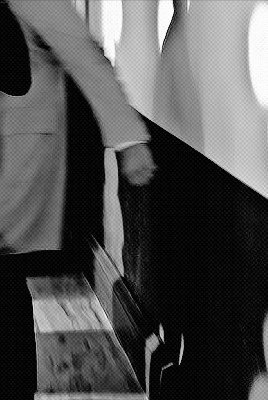
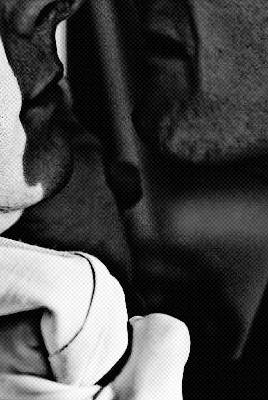
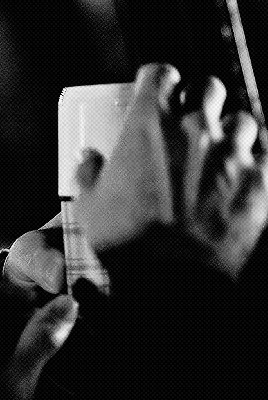
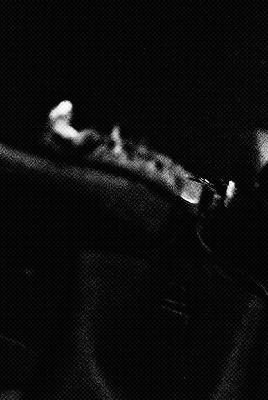

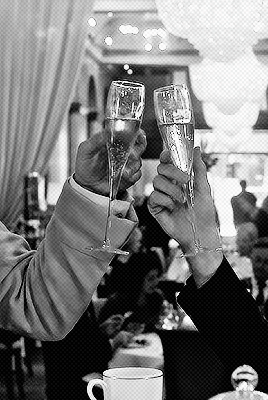
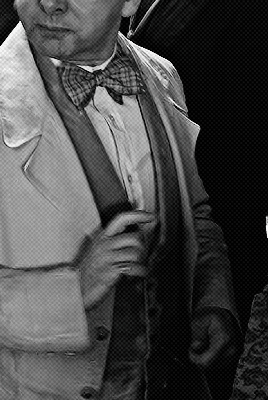
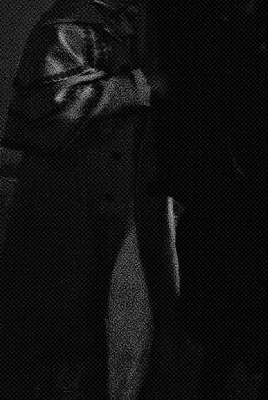
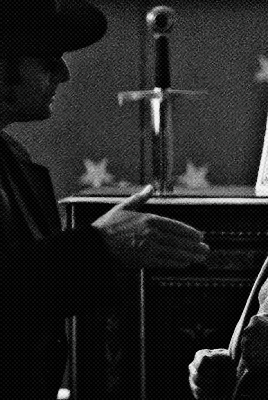
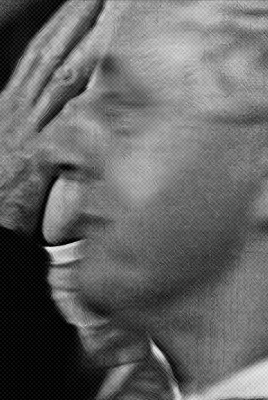
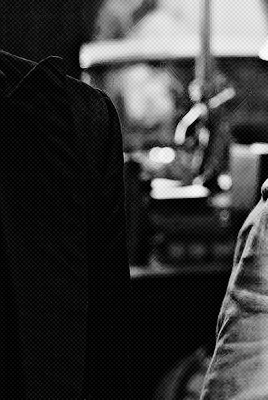
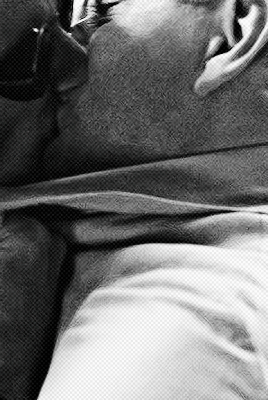
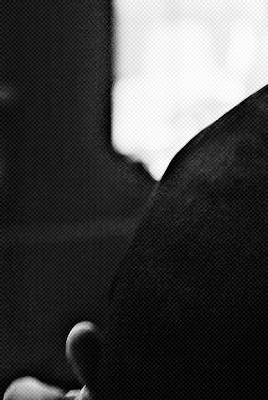
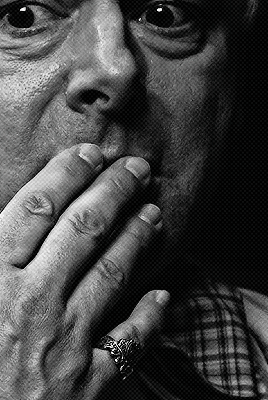
you need nerves of steel. and a hand as steady as the rock of gibraltar.

DT talk throwback: my interview w/David Blair, director of Takin' Over The Asylum
Over half a decade ago now I was a writer for David Tennant News/DT Forum, one of the bigger unofficial fan sites of DT's at the time (now sadly defunct). During my time there, I got the chance in Jan 2016 to interview David Blair - most notably the director of Takin' Over The Asylum, though he worked with DT in three other shows - about those projects, and what he remembered about David. I didn't want this interview to sink into the depths of the Wayback Machine and I thought y'all might enjoy reading it, so here is that interview in its entirety:


David Blair, Director / Front Cover of BBC DVD for Takin' Over The Asylum (UK)
Hello Mr. Blair! From 1992-1996 you worked with David Tennant on four separate television shows: Strathblair in 1992, The Brown Man in 1993, Takin' Over The Asylum in 1994 and A Mug's Game in 1996. Were you at all involved in the casting process for Strathblair, the first project you worked with David on... If so what did you see in the young actor that won him the role? And how did that translate into choosing him as Campbell Bain?
I was a Producer at the BBC before I started directing. David was a student at the Royal Scottish Academy of Music & Drama in Glasgow. He asked if he could meet me just to talk through procedure for TV, interviews, etc., as the college appeared more interested in theatre than camera. Indeed, frowned on the latter! He’d be about 18 then. I certainly knew from the outset that he ‘had something,’ and I gave him a few minor opportunities as soon as I embarked on my directing career. To be clear, I only work with actors I want and believe in – still do. Some might say my own career has been stifled by this obduracy but I don’t care. My need of working with great actors is paramount and David’s a shining example of what makes it all worthwhile. I commissioned Takin’ Over The Asylum for the BBC and worked closely with the writer throughout the creative process. I knew as soon as I read the screenplay, David was going to be perfect for Campbell. But I’m not a fascist about this kind of decision-making, so I mentioned to the writer and Casting Director I had a boy ‘in mind’ for the role. I didn’t oversell; I knew he would make it work for himself. There may have been some minor scepticism at first, but when he did his audition, he blew them away.
David's audition tape for Takin' Over The Asylum
Many of David's fans have seen Takin' Over The Asylum and are well-versed with it. Can you talk more about Strathblair, The Brown Man and A Mug's Game, and David's roles in each? Little is known about the roles he played in those productions. Can you give us any insight into the stories behind all three of the projects themselves, and what was it about David in those years that made you want to cast him in all of them?
In truth, Strathblair and The Brown Man were merely cogs in my directing wheel. They weren’t aesthetically of great merit but gave me a few credits to kick-start my career. What I needed was a ‘signature piece’ and that came along with Takin’ Over The Asylum. In many ways, I regard that as the start of my directing career. In those days, without a high-profile production on your CV, you would more than likely be destined for a treadmill of soaps and ‘continuing drama’. Before Asylum I was picking up scraps; after it, I was being asked what I wanted to do. Thus A Mug’s Game became my second collaboration with Donna Franceschild, who’d written Asylum. Ken Stott, Katy Murphy and others from Asylum were already on board - and really? We just wanted David to ‘be in it’. It wasn’t a huge role but he kindly agreed to come in and do it for us. Played a music student (at the Scottish Academy, as it happens), as I recall but, again, hugely professional and accomplished. In one scene, he had to throw up over the railway tracks at Partick train station in Glasgow.... ah, an enduring memory.....

Did David do anything on set of any of the productions he worked on with you that totally took you by surprise or that was unexpected? What did he do?
I think in those days, more than anything, it was important to keep in mind just how young he was. This boy of 21, was commanding the space, displaying an extraordinary ability to create laughter and tears; sometimes both at the same time! He had natural charm and wit and that, combined with this wonderfully spontaneous joie de vivre, made him a joy to be around both on the set and off.
What do you feel David's most unique/valuable attributes as an actor are? What do you think separates him from his peers as he has matured into the career he has today?
When I look at him now I still largely see the same lad I met all those years ago. Still bursting with enthusiasm and an absolute desire to come out on top – which he’s done consistently. He’s retained his appetite, clearly, and devoured a huge range of roles – never seeking a ‘comfort zone’ in the process. It’s also struck me that he’s never attempted to be somebody he’s not and that truth, integrity, diligence – some might say, ‘Scottishness’ (!) – defines the man we see today.
David has said he considers Takin' Over The Asylum a career-defining project for him. What is your reaction so many years down the line to that comment?
I’ve always been rather humbled by David’s regard for myself and Takin’ Over The Asylum. I genuinely never felt I did anything out of the ordinary. I picked the best man for the job which, God knows, he underlined in spades once he played the role. He gave me as much as I gave him. Of course, there are occasions in my own career where I look back at defining moments and say “if it hadn’t been for so-and-so”.... but, I guess, the reason why we can reflect in that way, is because we didn’t let anybody down. David didn’t – and I hope I didn’t. Looking back at Takin' Over The Asylum all these years later, do you feel it still holds up as well as it did? In retrospect do you feel it helped shed as much needed light on the mental health industry as you'd hoped?
Funnily enough, somebody called me the other day to say he’d sat down and watched all six episodes and couldn’t believe how well it’s stood the test of time. I think I agree. I suppose because it’s a subject matter nobody would touch with a bargepole these days – that’s keeps it fresh somehow. All the scripts were vetted by the Association For Mental Health before we signed off on them. The writer had had mental health issues and wanted it to be authentic and in no way derisory. In fact, I remember many of the extras I cast all had had mental issues – one in particular having been institutionalised for 37 years!
I'd like to explore your decision to cast institutionalized patients as extras in Takin' Over The Asylum in a bit more detail. Was this related to filming the series at Gartloch Hospital, and if not, how was the idea first presented and eventually implemented? Was this something you and Donna discussed as part of your intention to make the show as sensitive to the subject matter and as authentic as you could? And did you run into any problems with compensating the extras, or any other issues relating to their Sectioned status?
It was simply an idea I had not just to add authenticity, but to have these guys make a worthwhile contribution to the film – and also make them feel good about it, if you like. I wanted to dispel the notion that all mentally ill people were screaming banshees – the story alludes to this anyway – by whose definition are we mad? I also thought it would help the non-mad actors (if there is such a thing!!!) to be surrounded by the ‘real’ rather than the ‘made up’ and thereby enrich their own performances.
Speaking of Gartloch Hospital, how did you choose that particular hospital for the filming location?
Gartloch was one of several mental hospitals around Glasgow being run down at the time, as part of the government’s controversial ‘care in the community’ programme. In other words, ‘we don’t want to pay to look after them any more, so you do it’. Of all the ones I looked at, Gartloch – not least with its huge tower – seemed to provide the best ambience; most suitable for the story and visually rewarding also.
Exploratory views of the interior and exterior of (now abandoned) Gartloch Hospital
As you mentioned, you do certainly seem to gravitate towards actors and writers that inspire you. Years ago you spotted a certain something in David -- so if given an opportunity, would you be willing to work with David again and if you could choose your own ideal role for him, what would that role entail?
Nothing would give me more pleasure than finding a project that both David and I could work on. David, creatively, is a bit of chameleon, so I don’t think there’s an ‘ideal role’ for him as such. A brilliant piece of writing and a character that takes him a place he hasn’t been before would be the simple remit.
Over the years many fans of Takin' Over The Asylum have expressed their desire to know what happened to Campbell and Eddie after we left them. If you were to continue their story, where do you think Campbell and Eddie would be today?
My hunch is that Campbell would have gone on to be a success in the music industry and Eddie would have tumbled into an even darker place, fueled by alcohol and self-doubt. I’ve often imagined Campbell inadvertently bumping into Eddie while he was sleeping in a cardboard box and Campbell doing for Eddie what Eddie had done for Nana in the very first episode.
Lore is - from Donna amongst others -- that you asked her to take a minor character from a play she'd written and make a drama around him. Of course that character is Ready Eddie McKenna. Could you tell us what the name of that play was? And what was there about Eddie in the framework of that play that made you see him as the kind of character that could carry an entire series - and that Donna was the woman to write it?
With regard to the question below, it’s strange how little fateful moments define what we are and what we do. In my early days as a Producer, I commissioned Donna to write one of four monologues I was overseeing – I didn’t direct it, as it happens, but it was a sterling piece performed by Katy Murphy. The BBC – not myself – then commissioned Donna to adapt a stage play she’d written called And The Cow Jumped Over The Moon to fit a play strand we were doing at the time.
On the day of the studio, the Producer overseeing the project, was taken ill and they asked me to fill in for her ‘in the gallery’. (This was an old TV play where you worked in a rehearsal room for, say, three weeks then shot the whole thing – multi-camera – in a matter of days). Of course, as a result, I became familiar with the material and was indeed taken by this minor character – Eddie – who was a hospital radio DJ. After that, I asked Donna if she felt there might be mileage in creating a serial based around this character. I’d love to go into great and meaningful depth about why I thought that but, in truth, it was just a hunch – although it was one relative to how Donna was writing at that time; I believed she could deliver something unique with wide appeal. She hadn’t done any original TV work at that time (apart from the monologue) and had worries.
It took her some time to finally come up with a first draft – the breakthrough, she told me, came when she switched from just a hospital to a mental hospital. After that, we worked the episodes one at a time getting precisely where we wanted to be on one, before moving on to the next. Not an option that’s often available these days. During this process both Donna and I were supported hugely by the then Head of The Department, Bill Bryden. And that support manifested most clearly in simply leaving us to our own devices. No script executives, story editors or any other distractions. The work we ended up with had the footprint of nobody but ourselves.
And that's that! I hope you all enjoyed this unique insight into Takin' Over The Asylum and DT's work with David Blair.






#i think he's been smitten for a long time, crowley
GOOD OMENS 2.05 • "The Ball"
I was watching the bts videos yesterday including the making of the opening credits and Mr. Anderson said “We added plaques to the back of chairs and Neil chose who to honour on them”.
He’s referring to the chairs we briefly see in the theatre where Aziraphale is doing his magic act:

Left to right: A Tale of Two Cities by Charles Dickens, Pride and Prejudice by Jane Austen and The Crow Road by Iain Banks.
I want to focus on these three in a row specifically because Neil chose to put those books there in that order and I had something of an epiphany last night about it all when insomnia was chewing on my toes.
These three books have also been mentioned out loud in the show in episode 2 when Gabriel is reorganising the shelves:
“It was the day my grandmother exploded” - The Crow Road
“It is a truth universally acknowledged-” - Pride and Prejudice
“It was the best of times, it was the worst of times” - A Tale of Two Cities
For those unfamiliar with the books, I’ll do a quick potted summary of each, with a focus on why I think they’re relevant and especially why the order of the chairs in the theatre feels relevant.
A Tale of Two Cities
Set during the French revolution with one lead who is an aristocrat who has stepped away from his class and background to support the less fortunate than himself because he disagrees with the way they did things. Also, he changed his name because he doesn’t want to be associated with the place where he came from.
The big culmination of the books is when said man is betrayed and set to be executed, but his friend takes his place. There is very literally a body swap by someone who looks very like him in order to save his life. This body-swap is done out of love.
aka - season 1.
Pride and Prejudice
Two people from very different class backgrounds have a very very bumpy start to their relationship because of misinterpretation, miscommunication and a lot of external pressure put on them by the rules of their respective societies. Both of them have different information and because of that, both of them are seeing exactly the same situation very differently. One of them tries to express his affection, but does it so badly that the other tells him there is no chance she will join him.
aka - season 2
The Crow Road
A young man tries to solve a mystery of someone’s disappearance using only the papers they left behind, with said young man’s background rooted in faith and belief in a higher power. There’s also a secondary plot about emotional growth into a more mature and more fulfilling relationship.
(And wouldn’t you know it, it’s the book handed to Muriel by Crowley, who tells them they’ll like it, and the Metatron comments on it)
aka - season 3
Needless to say, I am quite excited :)
I’m emotionally ruined by the fact that Aziraphale hasn’t broken out of his heavenly conditioning. He still loves doing good. He gets happy when people tell him he’s an angel and says “it’s nice to tell people about the good things you’ve done now that I’m not reporting to Heaven”. He will literally put himself in harm’s way to make sure he does the Good and Right thing.
It can’t be understated how much Heaven’s influence still impacts on him. Aziraphale has been created, ordained and conditioned to believe it and he can’t just switch it off or walk away. Crowley didn’t get the choice. He was Fallen. He was kicked out and - as per the rules of toxic and terrifying cults - Aziraphale was always told for centuries and millennia, Falling was the worst thing that could happen. If you’re bad, you’ll be forced out. If you’re bad, you’re not one of Us. You’re one of Them.
When he did something he perceived as Right (ie. saving innocent children from death), but knew it wasn’t what Heaven intended, he broke down. Crowley found him a crying, shaking wreck afterwards because he was so convinced he was Evil. He was so convinced he was going to be dragged to Hell and that he was now a demon because he did one thing that saved some children but because it wasn’t a specific directive, it was Bad.
It shapes so much about him and it’s why the whole series looks like he’s having so much fun doing silly human things, but there’s this brittleness to it. He’s happy and excited and he’s doing his human-life things and having a lovely time, but he’s also constantly stressed because of the Need To Do Good. From the moment Gabriel turns up, he’s a nervous wreck and is trying to hide it by Doing Good, by Solving the Problem, by Fixing Things, by being so active and reactive rather than letting himself think about it. It’s a sign of exactly how frantic he is that he starts giving away his books and letting humans touch them.
Watch his face when the Archangels show up unexpectedly: that isn’t joy. That’s blind terror. He’s so afraid of doing the wrong thing in Heaven’s eyes, even though he made the active choice to do so because it was the Right thing to do. He’s a Guardian and he will protect, but he is so very afraid of the repercussions, even now.
At the end of S1, Crowley said “they’re gearing up for the big one” so Aziraphale’s not oblivious. He knows a big one is coming. He knows something worse than the Antichrist will be on its way. And he’s trying so hard to pretend that everything is normal and fine and if he ignores all the looming bad stuff, it won’t happen. If we don’t say anything about it, nothing has to change.
But then the changes come knocking at his door holding a box and the choice is gone. He can keep trying to blinker himself to it, but then there are angels and demons in the bookshop and he’s had to use his halo and everything is falling apart.
So when he realises that he can get himself into a position where he can guarantee those repercussions won’t happen to Crowley? He will absolutely take it. He says himself “I don’t want to go back to Heaven”, but the instant the Metatron offers him a free pass for Crowley, to take Crowley out of both Heaven and Hell’s sightlines, to keep him safe (Another bee inside the hive, if you will), no wonder he grabs it with both hands.
The tragedy is that Crowley thinks that when they saved the world together, that was the end of Heaven’s influence in Aziraphale. When he was cast out the split between him and Heaven was sharp and clean. He doesn’t - he can’t - understand how deeply it has tangled around Aziraphale. It’s built into Aziraphale’s entire being and unravelling it isn’t that simple. Aziraphale’s trauma is a horrible, terrible Gordian knot and Crowley can’t understand that he couldn’t simply cut through it, because that’s just not how Aziraphale works.
I am so insane about the Job arc.
God says, "I will destroy Job's children," and Aziraphale says, "How did he wrong you?"
God says, "I will destroy Job's children," and Aziraphale says, "How will you make it right?"
God says, "I will destroy Job's children," and Aziraphale says, "Gosh, I don't doubt you know what you are doing and all, but maybe we could slow things down a little and talk about this? And it's essential to the divine plan? Are we sure?"
Crowley says, "I will destroy Job's children," and Aziraphale looks him in the eye and says, "No, you won't."
-
 lucca24601 liked this · 1 year ago
lucca24601 liked this · 1 year ago -
 homeboysgotguts reblogged this · 1 year ago
homeboysgotguts reblogged this · 1 year ago -
 nature-never-did-betray liked this · 1 year ago
nature-never-did-betray liked this · 1 year ago -
 writingdepression liked this · 1 year ago
writingdepression liked this · 1 year ago -
 everyonehasamnesia reblogged this · 1 year ago
everyonehasamnesia reblogged this · 1 year ago -
 raggedy-spaceman liked this · 1 year ago
raggedy-spaceman liked this · 1 year ago -
 alovelyocean reblogged this · 1 year ago
alovelyocean reblogged this · 1 year ago -
 on-till-morning liked this · 1 year ago
on-till-morning liked this · 1 year ago -
 an-undercover-duck liked this · 1 year ago
an-undercover-duck liked this · 1 year ago -
 snikkysnekky liked this · 1 year ago
snikkysnekky liked this · 1 year ago -
 papa-goose-ollie reblogged this · 1 year ago
papa-goose-ollie reblogged this · 1 year ago -
 papa-goose-ollie liked this · 1 year ago
papa-goose-ollie liked this · 1 year ago -
 liquidhistory liked this · 1 year ago
liquidhistory liked this · 1 year ago -
 gabneedssleep liked this · 1 year ago
gabneedssleep liked this · 1 year ago -
 tangle-of-messy-thoughts liked this · 1 year ago
tangle-of-messy-thoughts liked this · 1 year ago -
 thundercrackfic liked this · 1 year ago
thundercrackfic liked this · 1 year ago -
 uemangero liked this · 1 year ago
uemangero liked this · 1 year ago -
 very-ace-with-aros liked this · 1 year ago
very-ace-with-aros liked this · 1 year ago -
 alovelyocean liked this · 1 year ago
alovelyocean liked this · 1 year ago -
 alovelyocean reblogged this · 1 year ago
alovelyocean reblogged this · 1 year ago -
 gentildonna reblogged this · 1 year ago
gentildonna reblogged this · 1 year ago -
 purplepalacebearbonk liked this · 1 year ago
purplepalacebearbonk liked this · 1 year ago -
 javonchy liked this · 1 year ago
javonchy liked this · 1 year ago -
 amagicbeyond liked this · 1 year ago
amagicbeyond liked this · 1 year ago -
 naranjapetrificada liked this · 1 year ago
naranjapetrificada liked this · 1 year ago -
 bindi342 liked this · 1 year ago
bindi342 liked this · 1 year ago -
 star-o liked this · 1 year ago
star-o liked this · 1 year ago -
 traumapissbb liked this · 1 year ago
traumapissbb liked this · 1 year ago -
 aoliosa liked this · 1 year ago
aoliosa liked this · 1 year ago -
 insecuremushroom liked this · 1 year ago
insecuremushroom liked this · 1 year ago -
 eldritchsibling liked this · 1 year ago
eldritchsibling liked this · 1 year ago -
 theblabarmy reblogged this · 1 year ago
theblabarmy reblogged this · 1 year ago -
 galletadechocolate liked this · 1 year ago
galletadechocolate liked this · 1 year ago -
 fruitsaladcowboy420 liked this · 1 year ago
fruitsaladcowboy420 liked this · 1 year ago -
 justcallmeladybug liked this · 1 year ago
justcallmeladybug liked this · 1 year ago -
 verityblack liked this · 1 year ago
verityblack liked this · 1 year ago -
 comrade-omnidroid liked this · 1 year ago
comrade-omnidroid liked this · 1 year ago -
 confirmedworm liked this · 1 year ago
confirmedworm liked this · 1 year ago -
 erme-maererme reblogged this · 1 year ago
erme-maererme reblogged this · 1 year ago -
 erme-maererme liked this · 1 year ago
erme-maererme liked this · 1 year ago -
 tinyheroweaselbailiff liked this · 1 year ago
tinyheroweaselbailiff liked this · 1 year ago -
 crookshanksagentofowca reblogged this · 1 year ago
crookshanksagentofowca reblogged this · 1 year ago -
 gentildonna liked this · 1 year ago
gentildonna liked this · 1 year ago -
 random-f4ngirl liked this · 1 year ago
random-f4ngirl liked this · 1 year ago -
 insomnia3555 liked this · 1 year ago
insomnia3555 liked this · 1 year ago -
 merrimorp liked this · 1 year ago
merrimorp liked this · 1 year ago -
 guineapigposse liked this · 1 year ago
guineapigposse liked this · 1 year ago

Doctor Who, Good Omens and basically everything DT is in | Not a shipper per se, but feel rather partial to tensimm f***ed-up dynamics. Some other stuff as well - Classic Rock (mostly British), Art Deco, etc
228 posts



